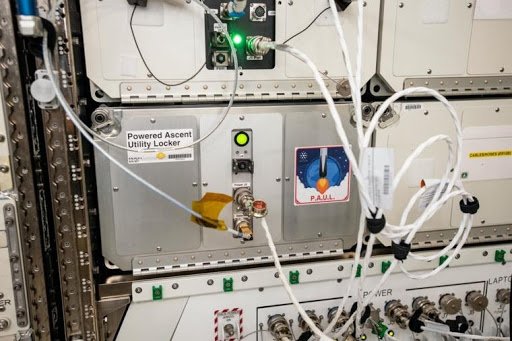Faradine Systems AWARDED U.S AIR FORCE SBIR PHASE 1 CONTRACT
1 June, 2023 – Faradine Systems (Faradine) announces it has been selected by AFWERX for a SBIR Phase 1 in the amount of $75k USD focused on mesh connected signaling nodes to investigate its potential to fill capability gaps in the Department of the Air Force (DAF). The Air Force Research Laboratory and AFWERX have partnered to streamline the Small Business Innovation Research (SBIR) and Small Business Technology Transfer (STTR) process by accelerating the small business experience through a faster proposal to award timelines, changing the pool of potential applicants by expanding opportunities to small business and losing bureaucratic overhead by continually implementing process improvement changes in contract execution. The DAF began offering 'The Open Topic' SBIR/STTR program in 2018 which expanded the range of innovations the DAF funded and now on May 1st, 2023, Faradine will start its journey to create and provide innovative capabilities that will strengthen the national defense of the United States of America.
About Faradine Systems
Faradine Systems is a Lexington KY based company founded by CEO Chris Mitchell in 2014 as a Service Disabled Veteran Owned Small Business (SDVOSB). The company has developed and deployed remote connected devices in many industries including integrated hardware on the International Space Station, Space-X Dragon Capsule, and the Northrop Grumman Cygnus as well as thousands of IoT connected devices operationally deployed across the United States and abroad. The Faradine team has over a decade of experience working together to take ideas from conception to deployment in the harshest environments found on the planet and beyond. For more information visit: www.faradinesystems.com
About AFRL
Sole organization leading the planning & execution of USAF & USSF science & technology programs. Orchestrates a world-wide government, industry & academia coalition in the discovery, development & delivery of a wide range of revolutionary technology. Provides leading-edge warfighting capabilities keeping air, space and cyberspace forces the world's best. Employs 10,800 military, civilian, and contractor personnel at 17 research sites executing an annual $4B budget. For more information, visit: www.afresearchlab.com.
About AFWERX
AFWERX is an Air Force Research Laboratory Directorate that connects innovators across government, industry and academia. Through innovation and collaboration with our nation’s top subject-matter experts, AFWERX harnesses the power of ingenuity of internal talent while expanding technology, talent and transition partnerships for rapid and affordable commercial and military capability.
Additional information is available at: www.afwerx.com/.
About AFVentures
AFVentures invests in emerging technologies to scale Department of the Air Force capabilities, strengthening the US industrial base that empowers Airmen and Guardians by incentivizing private, for-profit investment in national security interests. Our success is achieved by connecting novel commercial solutions with defense problem sets, de-risking Airmen and Guardian initiatives to fill capability gaps and transition technologies. Learn more at https://afwerx.com/afventures-overview/.





